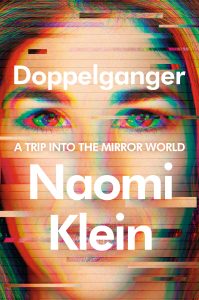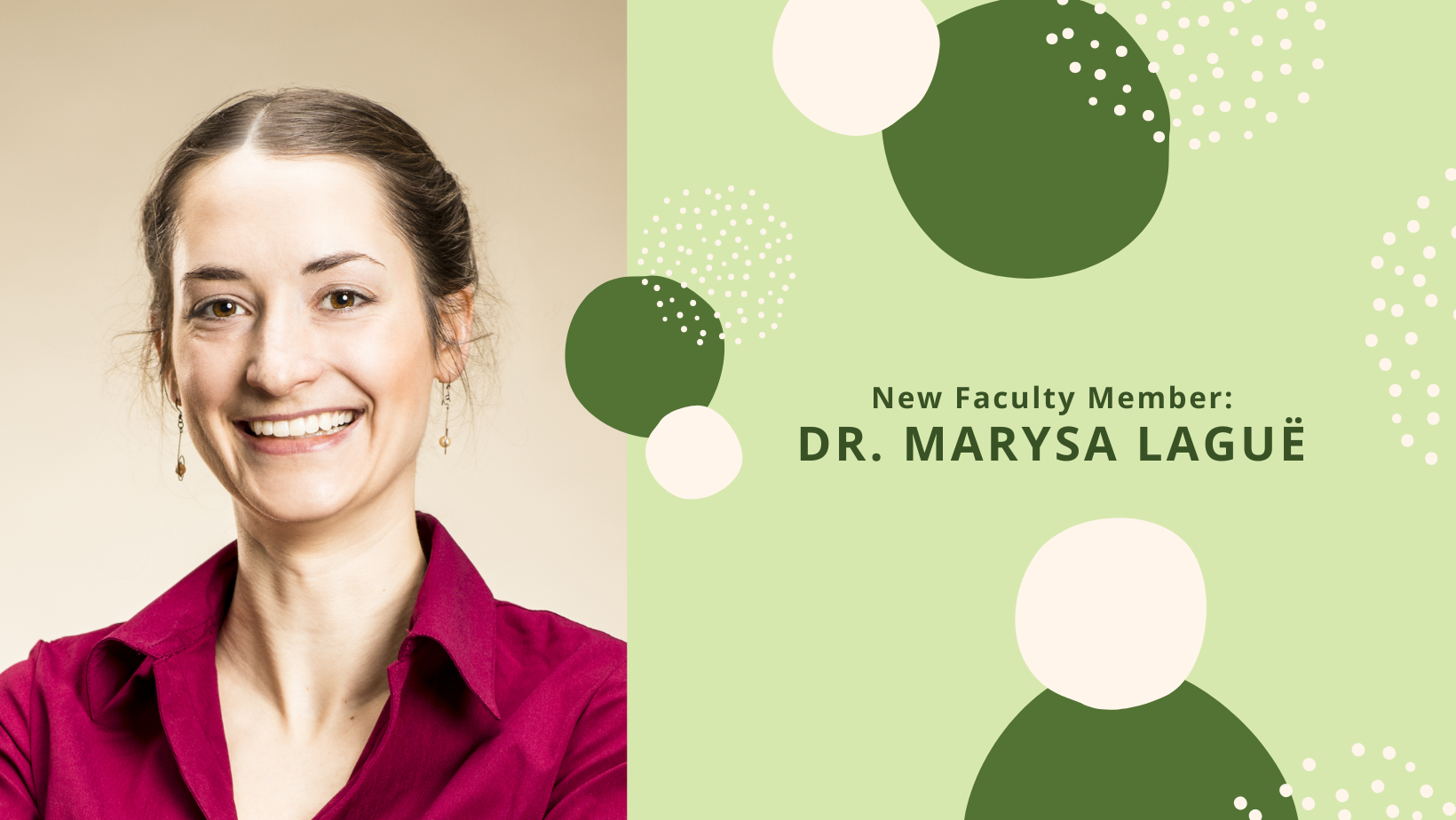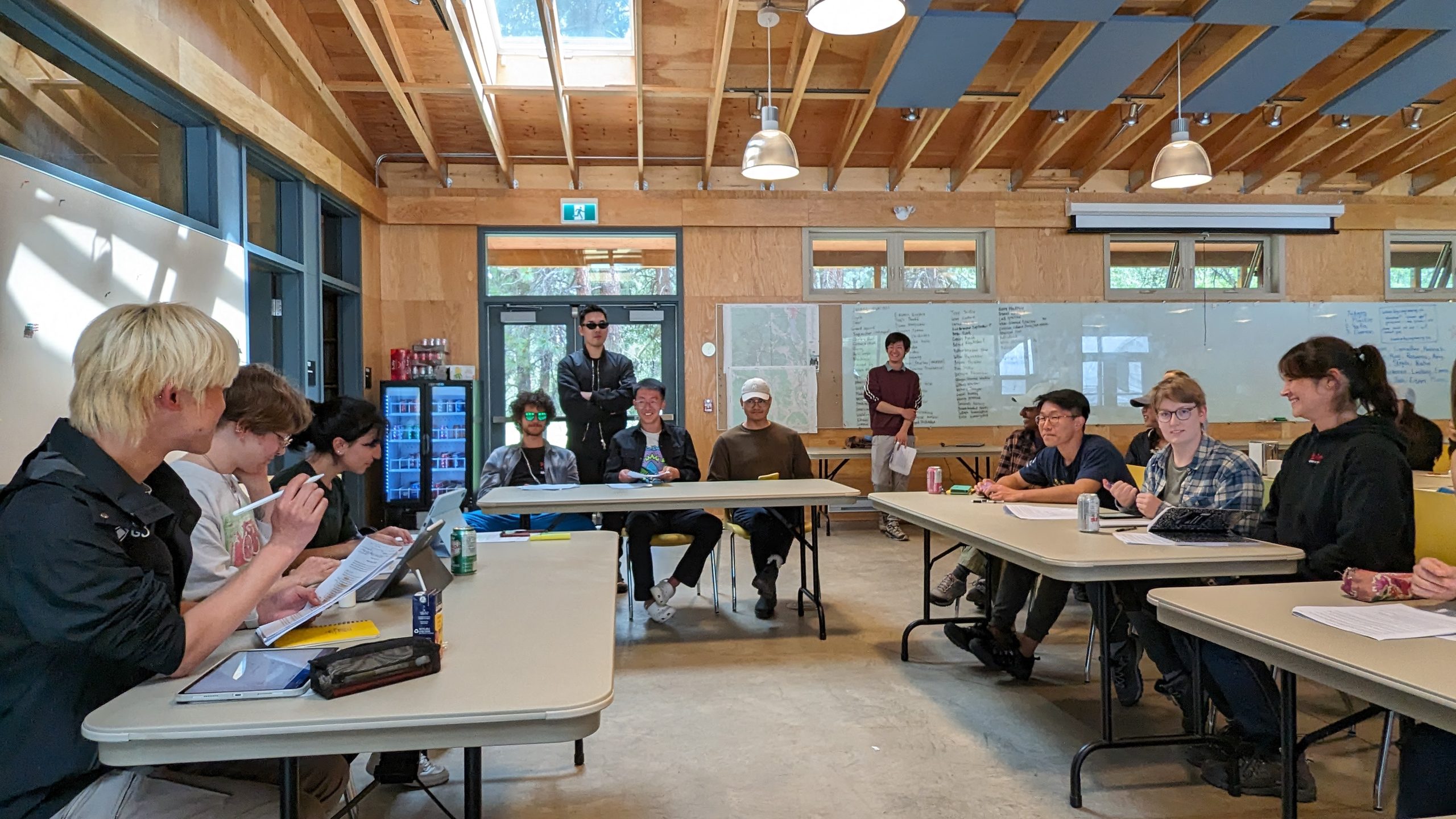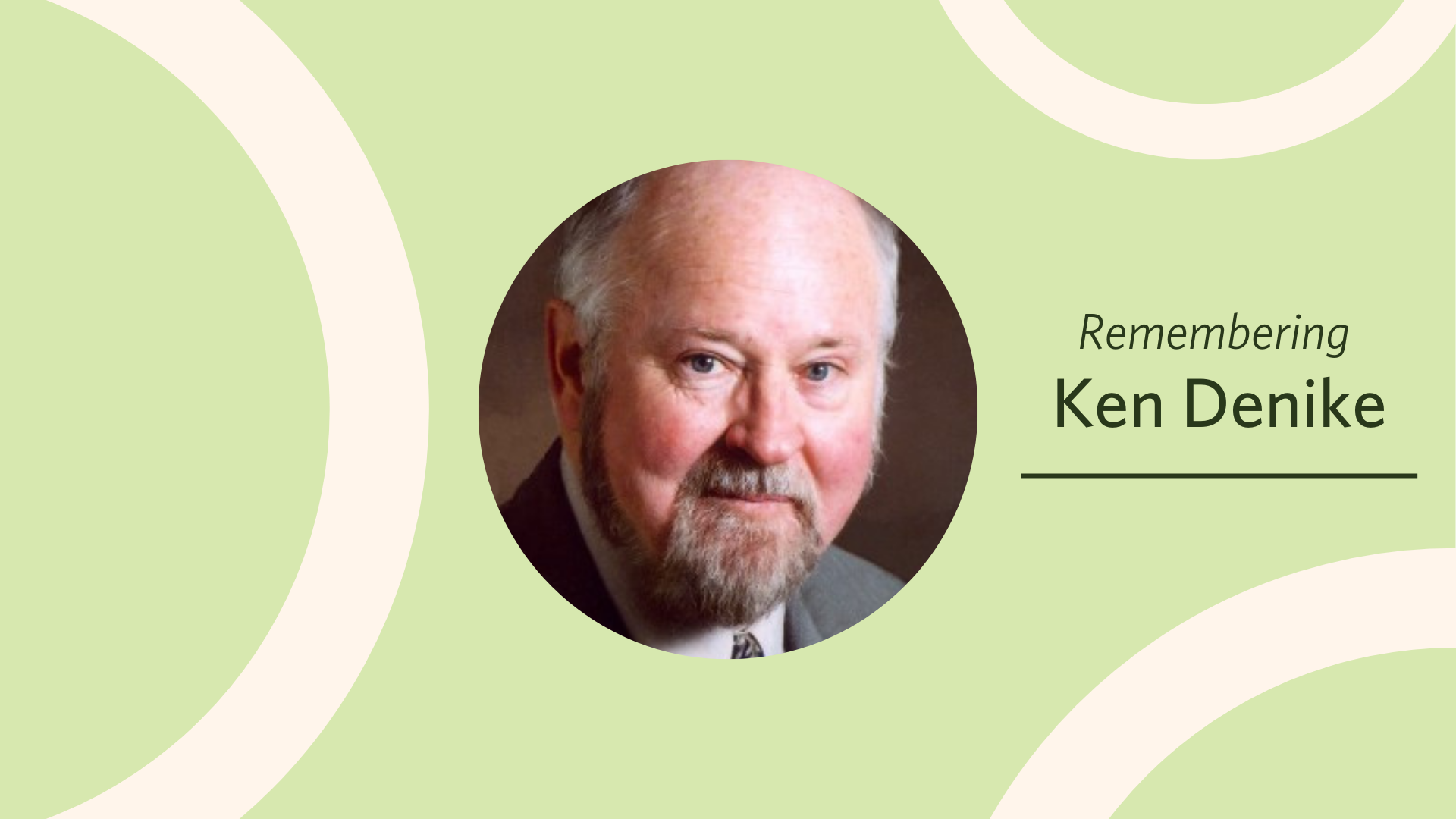Photo Credit: Kourosh Keshiri


In an exclusive Q&A, Klein goes in-depth about her inspiration, research process, and the rise of conspiracy culture.
Additionally, you can join the conversation on October 21 during the Vancouver Writers Festival at the Chan Centre for the Performing Arts.
Plus, enter HERE to win a signed copy of the book.
Doppelganger is a departure from your previous books. What motivated you to take a more personal and self-reflective approach? And was there any apprehension in being more vulnerable?
It’s my ninth book and definitely my most personal. I tried to write in my speaking voice, the voice that I use with my friends when we’re somewhere between laughing and crying at the absurdity and gravity of it all. One of the themes of the book is that the quest to perfect and “brand” our individual selves – an understandable survival strategy in extremely insecure times – is getting in the way of the collective and coalitional work that is required to meet this moment of polycrisis. If I’m going to ask that vulnerability of others, it seemed only fair for me to take myself a little less seriously and, yes, to write more candidly, even confessionally. I had some apprehensions, but I’ve been gratified that many have responded to the book by sharing their own vulnerabilities and self-criticisms. I think many of us are searching for less guarded ways to be with one another.
We are currently living through some unpredictable times – some would even argue outrageous, or even scary. Why was now the right time to write this book?
We are living through some weird times and it struck me that they called for a slightly weirder book, and that form should mirror function in some sense. In truth, I wrote this book because the concept – using my own doppelganger to explore many different kinds of individual and collective doublings – just grabbed me and wouldn’t let me go. I got to play with form and voice in a way that I haven’t felt free to do since I was a very young writer. I found the process therapeutic and enlivening and I hope others find some solace in it as well. As I say in the book’s first paragraph: “In my defense, it was never my intent to write this book. I did not have time. No one asked me to. And several people strongly cautioned against it.” And that was part of the fun!
You observe interesting ideological shifts, including political right- and left-wing alliances. How do you explain these odd partnerships and should we be concerned?
One way of understanding it is as a manifestation of “diagonalism.” That’s a term used by William Callison and Quinn Slobodian, both scholars of European politics, to describe the forging of coalitions that cross some traditional left-right divides in unexpected ways. Think yoga sessions at the trucker convoy. Alternatively, my own doppelganger – once a prominent feminist and advisor to the Democratic Party – now appearing regularly on Steve Bannon’s podcast.
Diagonalism is a combination of extreme rejection of traditional democratic institutions with elements of spiritual holism as well as libertarianism, and a belief that all experts are lying all the time. While these movements do draw from the New Age, the green left and some forms of “power” feminism, they reliably arc to the hard right.
I’ve spent a lot of time puzzling over why the “wellness” world in particular was so prone to various forms of COVID-19 denialism. One possibility is that the underlying tenets of corporate wellness culture already rhymed with the paranoid individualism of far-right conspiracy culture. The core message that individuals must take charge over their own bodies as their primary sites of influence, control, and competitive edge has turned out to be all too compatible with far-right notions of natural hierarchies, genetic superiority, and disposable people. So, yes, we should be concerned, there’s a lot of Lycra in Vancouver!
The book examines the rise of conspiracy theory culture. What are some critical implications and how is it a threat to progress/discourse?
I call it “conspiracy culture” and its major players are “conspiracy influencers” because there are rarely coherent theories and the claims often wildly contradict one another. The most important implication is that conspiracy culture is a distraction machine, detracting attention away from the economic policies—deregulation, privatization, austerity—that have stratified wealth so disastrously in the neoliberal era.
Conspiracy influencers rile up anger about the Davos elites, Big Tech and Big Pharma—but the rage never seems to reach those targets. Instead, it gets diverted into attacks on anti-racist education and trans healthcare, as well as into white supremacist Great Replacement panic. Meanwhile, the billionaires who bankroll the whole charade are safe in the knowledge that the fury coursing through our culture isn’t coming for them. I’m pretty sure that’s why people like Elon Musk and Donald Trump are so drawn to conspiracy culture: it taps into antiestablishment fury while shifting attention away from the scandals we know about and that many have already painstakingly proven.
It also constantly moves the horizon of outrage out into the future, something even more explosive, something that is supposedly just on the verge of being proven, but never quite yet. Another point about conspiracy culture that bears stressing: conspiracy culture doesn’t challenge capitalism’s culture of hyper-individualism or the “great men” theory of history. Instead, it mirrors it, putting all the blame for society’s ills on singularly powerful individuals: Fauci, Gates, Schwab, Soros. It reassures believers that if this handful of figures was held to account, capitalist health would be restored. But it’s important to understand that while conspiracy fantasies get the facts wrong, they often get the feelings right.
Photo Credit: Sebastian Nevols


“Engaging with economic, social and cultural change on this scale requires knocking down silos, inside the university and well beyond. It’s tough and exciting work. No shortcuts. ”
What do you hope readers take away from the book? As faculty with the UBC Department of Geography, what advice do you have for students and the next generation living through these unusual times?
One message to all students is that people need maps in these chaotic times – and there are many different ways of making a map. Doppelganger is an attempt to cognitively map some key aspects of the post COVID-19 world, through what Arundhati Roy called the pandemic’s “portal.” The book is structured as a map:
- Part I: Double Life (where we make and perform doubles of ourselves, on and offline)
- Part II: Mirror World (politics as a reactive dance, often involving mirroring and mimicry); and
- Part III: Shadow Lands (the truths, people and places so many of us cannot bear to look at directly, which is why we are so drawn to mirrors)
The most important message, though, is that no map is definitive. Our maps are always drafts and there are always missing topographical elements, always roads that we missed. That’s why the real work begins when you release your map into the world and let other people tell you what you missed.
Whatever their limitations, I think we need these orienting efforts because maps can help calm us in these chaotic times, and that calm is a precondition for rational decision making and strategic thinking. I’ll quote what the great John Berger once said to me: “Calm is a form of resistance.”
As another summer season comes to an end, extreme weather events continue to have severe impacts across Canada and around the globe. In your role at UBC’s Centre for Climate Justice, how should we respond and enact true climate justice?
The Centre for Climate Justice (CCJ) is led by an incredible team of scholars. Currently, I co-direct with Dr. Kavita Philip in English and Dr. Hannah Wittman in the Institute for Resources, Environment and Sustainability and the Faculty of Land and Food Systems. We believe in collective leadership and I’m so fortunate to be part of this cross-disciplinary team. We work well together because we agree that communities on the frontlines of climate disruption, in the Global South and here at home, are the true climate justice leaders. Additionally, their rooted knowledge systems and expertise should shape both research priorities and policy responses. We know that emissions reduction at the speed and scale required to meet the temperature targets in the Paris Agreement will not be achieved through a carbon-centric approach alone. Meaningful climate action now implies society-wide, structural shifts, including paradigmatic shifts in what our economies are for. Engaging with economic, social and cultural change on this scale requires knocking down silos, inside the university and well beyond. It’s tough and exciting work. No shortcuts.
Win a signed copy of Doppelganger
Learn more about the Vancouver Writers Festival event with Naomi Klein on October 21


